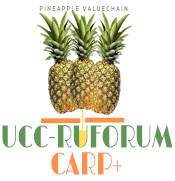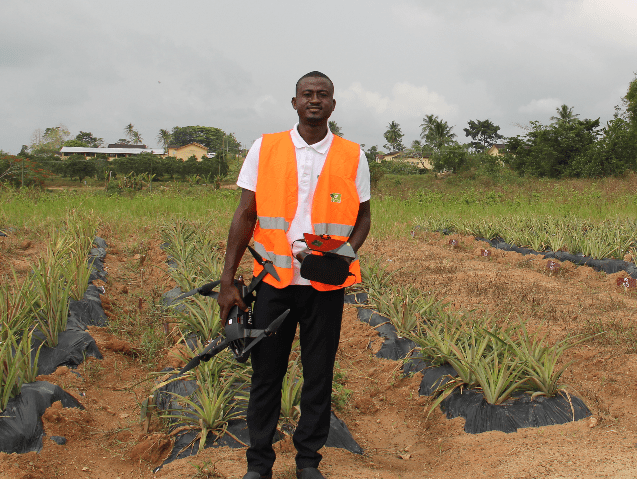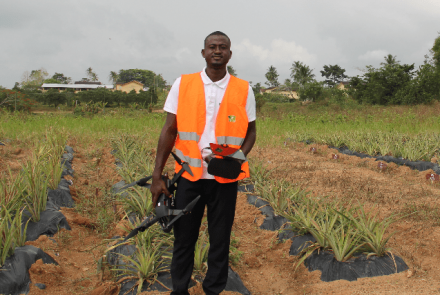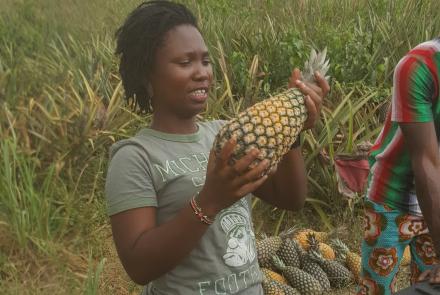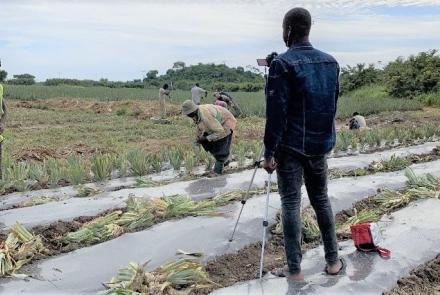University of Cape Coast PhD Student uses drone technology to improve livelihoods of smallholder farmers
I love using the Drone technology, especially in the field of agriculture. It is entertaining, fun and exciting to operate and work with. Zikiru Shaibu
Modern technology is making it possible for the youth to find agriculture attractive and it provides opportunities for them to engage in the service industry involving small farmers. Research is needed to see how effective digital media, drones, and other 4th Revolution technology can be used to increase employment, food security, and improve livelihoods in rural areas.
Years back, when people heard the word “drones”, the immediate thought they had is the military drone which is used in combat. Currently across the globe, there is more drone used by the general public than in the military. Diverse users of the technology apply it in the building and construction industry, art and media industry, agriculture industry, among many others
Fortunately, I am an advocate for the application of drone technology in agriculture. Drone technology basically supports the concept of precision farming by providing meaningful information to farmers to make an informed decision on their farm management. The African Union (AU) and NEPAD highlighted the drone technology to be an information revolution that will result in a more precise and effective farm management system, especially useful to service the small-scale farmers predominantly in Africa.
The Drone is just a flying robot that is remotely controlled or can fly autonomously through a software-controlled flight plan in conjunction with GPS. The use of technology has drawn much attention and the interest of people across the globe. Every day, people want to hear more about the technology, its challenges, and its potentials.
Together with a team of University of Cape Coast (UCC) lecturers, we won a cost-shared initiative with Technical Centre for Agriculture and Rural Cooperation ACP-EU (CTA) and Parrot to be supplied with the drone equipment and training. In October 2018, I had the opportunity to be one of the trainees who benefited from the training on the use of ‘Unmanned Aerial Systems (UAS) for Service Delivery, Mission Planning, Piloting, & Image Acquisition’. The training was organized by the Department of Agricultural Economics and Extension, UCC with the support of CTA and Parrot Business Solution.
In agriculture, the major application of drone technology includes generation of prescription maps, farm structure inspection, high-resolution mapping and surveying of farm fields, crop scouting/monitoring for disease, pests and nutrient deficiency, crop volume and vigour assessments, crop inventory/population density, crop damage assessment, precision spraying, and insurance claim forensics. It can also be used for market forecasts and national food security early warning systems, as well as by co-operatives, transporters, and contract farmers. It thus helps to overcome some of the expenses of information, compliance, and forecasting that have in the past made it uneconomic to provide services to, or engage with, small farmers.
Being equipped with the training, I decided to research more in the use of technology in agriculture because there is limited literature on field experiments or research done using drone technology, particularly for small farmers. Fortunately, I got scholarship support from the MasterCard Foundation through the support of RUFORUM and the University of Cape Coast, to experiment on the use of the drone technology and mobile phones to improve livelihood outcomes of smallholder farmers along the pineapple value chain in the Central Region of Ghana.
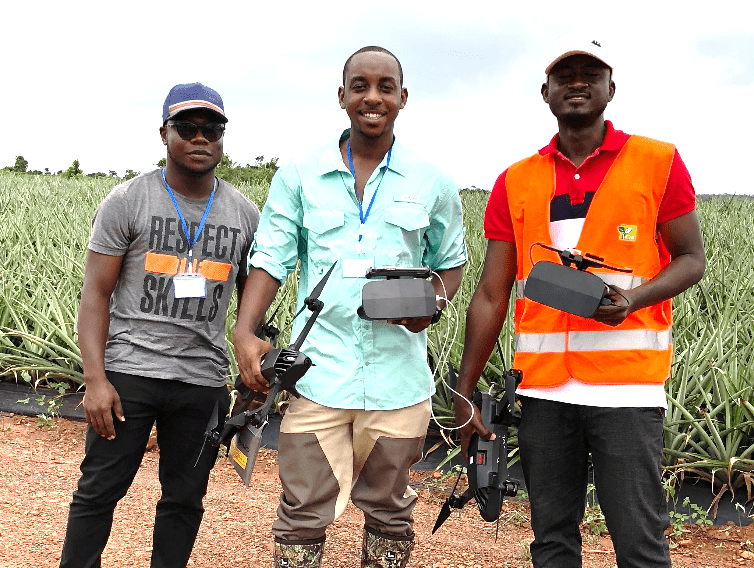
So far, the project has been successfully approved and initiated after a PhD proposal defense at the Department of Agricultural Economics and Extension, University of Cape Coast, Ghana. Still at the beginning stage of the project, I have carried out a generation of prescription map, farm structure inspection, and mapping and surveying of pineapple fields.
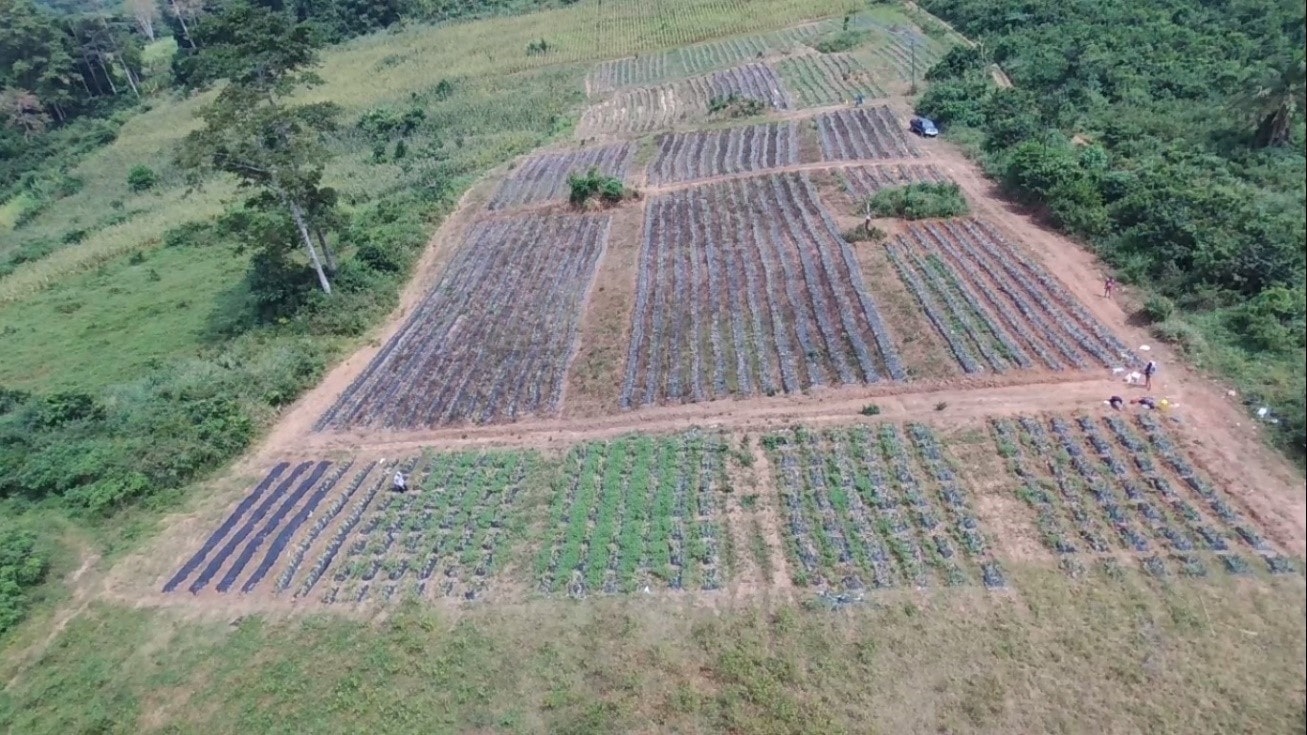
The implication of the first three activities is to help make informed decisions on the necessary and required inputs needed for the production stage of the pineapple. An earlier fly of the drone on farm fields helps a farmer to have an aerial view of their farms by knowing its size and shape, identify inconsistencies with respect to location and shape of the fields. This also informs the decision on the number of planting materials needed, number of mulching materials required, quantity of agro-chemicals required, and equipment types to be used on the field. Going further in this study which is becoming more interesting, I seek to undertake plant counting, plant health analysis, crop stress analysis, crop loss/damage analysis, and yield estimation.
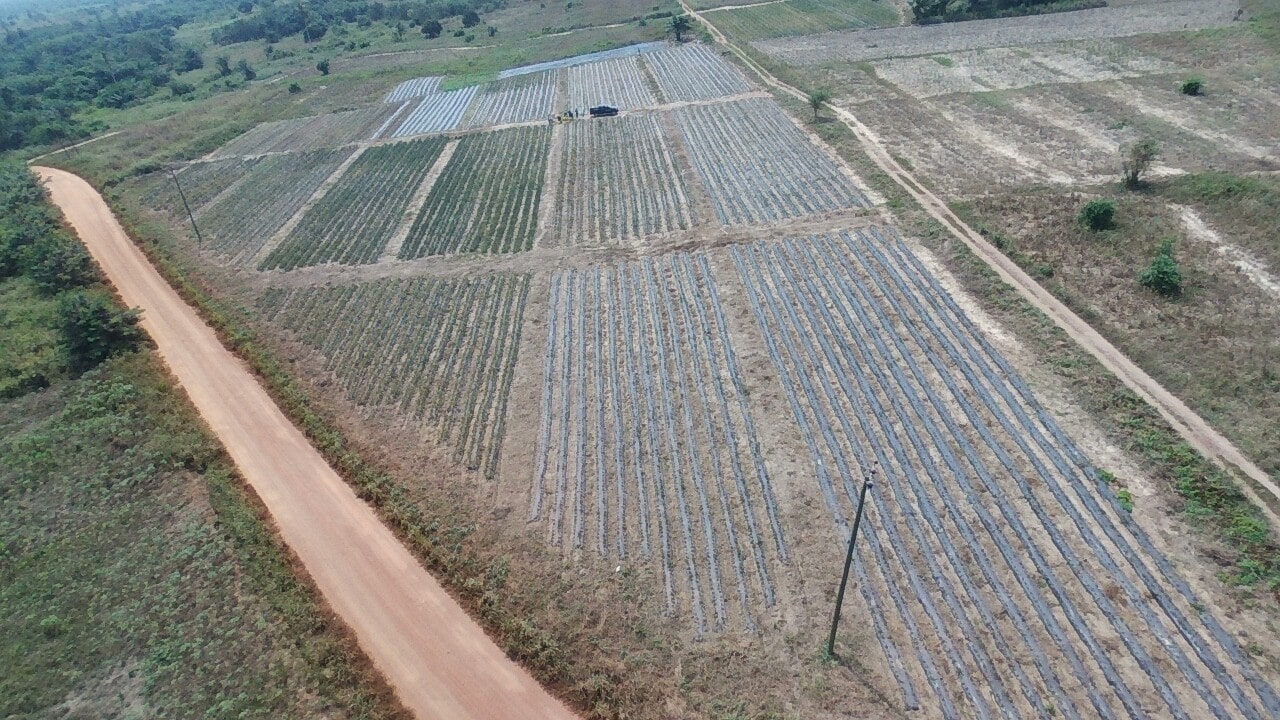
In addition to the drone technology, using digital media such as mobile phones, radio and television enhances precision farming information delivery. Thus, by the end of the project, I will determine the contribution of the drone technology and mobile phones to the livelihood outcomes of smallholder farmers along the pineapple value chain in the Central Region of Ghana.
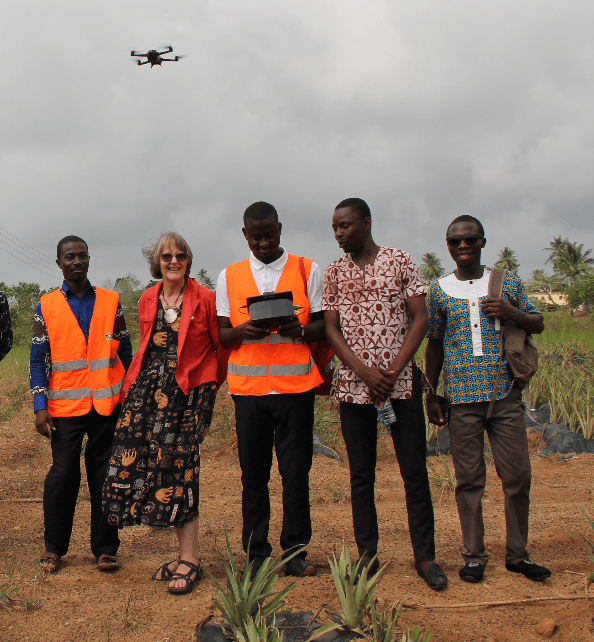
I thank all the supporting organisations: MasterCard Foundation, CTA, Parrot Business Solution, RUFORUM and the University of Cape Coast for equipping me to undertake this study. I am looking forward to contributing to existing knowledge on the drone technology and digital media, and to help improve livelihood outcomes of smallholder farmers in the Central Region of Ghana.
Mr. Zikiru Shaibu is a student currently specializing in Agricultural Extension Education through a PhD Agricultural Extension programme at the University of Cape Coast, Ghana. Also a young enthusiastic entrepreneur with a research interest in the Application of Information and Communication Technologies (ICTs) for Agricultural Value chain agribusiness development. zikiru.shaibu@stu.ucc.edu.gh
